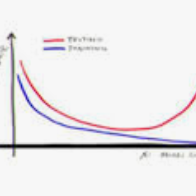Let $W$ be a string of length $n$ over an alphabet $\Sigma$, $k$ be a positive integer, and $\mathcal{S}$ be a set of length-$k$ substrings of $W$. The ETFS problem asks us to construct a string $X_{\mathrm{ED}}$ such that: (i) no string of $\mathcal{S}$ occurs in $X_{\mathrm{ED}}$; (ii) the order of all other length-$k$ substrings over $\Sigma$ (and thus the frequency) is the same in $W$ and in $X_{\mathrm{ED}}$; and (iii) $X_{\mathrm{ED}}$ has minimal edit distance to $W$. When $W$ represents an individual's data and $\mathcal{S}$ represents a set of confidential patterns, the ETFS problem asks for transforming $W$ to preserve its privacy and its utility [Bernardini et al., ECML PKDD 2019]. ETFS can be solved in $\mathcal{O}(n^2k)$ time [Bernardini et al., CPM 2020]. The same paper shows that ETFS cannot be solved in $\mathcal{O}(n^{2-\delta})$ time, for any $\delta>0$, unless the Strong Exponential Time Hypothesis (SETH) is false. Our main results can be summarized as follows: (i) an $\mathcal{O}(n^2\log^2k)$-time algorithm to solve ETFS; and (ii) an $\mathcal{O}(n^2\log^2n)$-time algorithm to solve AETFS, a generalization of ETFS in which the elements of $\mathcal{S}$ can have arbitrary lengths. Our algorithms are thus optimal up to polylogarithmic factors, unless SETH fails. Beyond string sanitization, our techniques may inspire solutions to other problems related to regular expressions or context-free grammars.
翻译:暂无翻译



